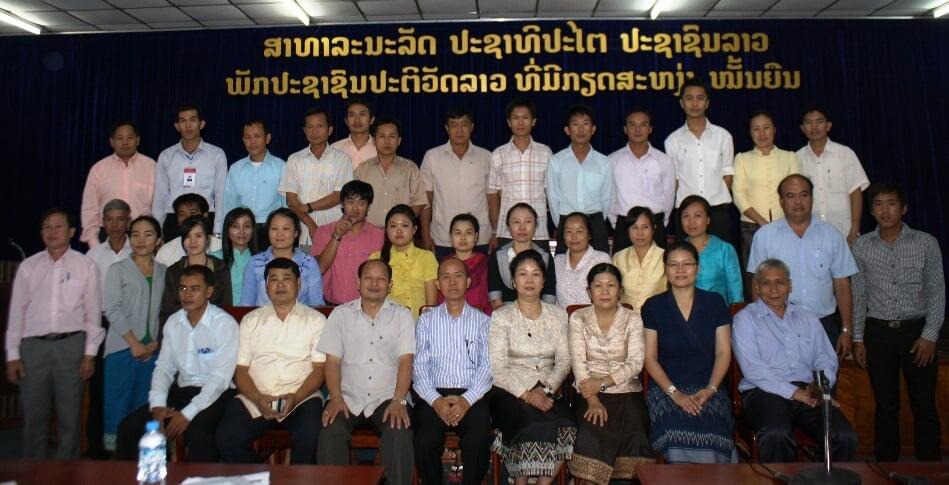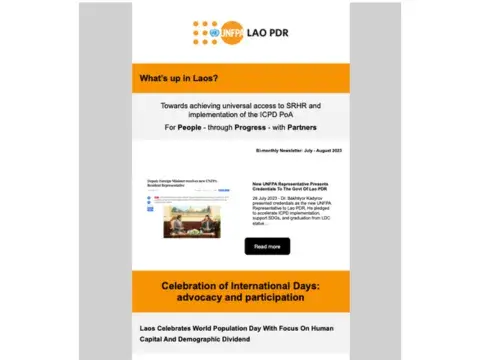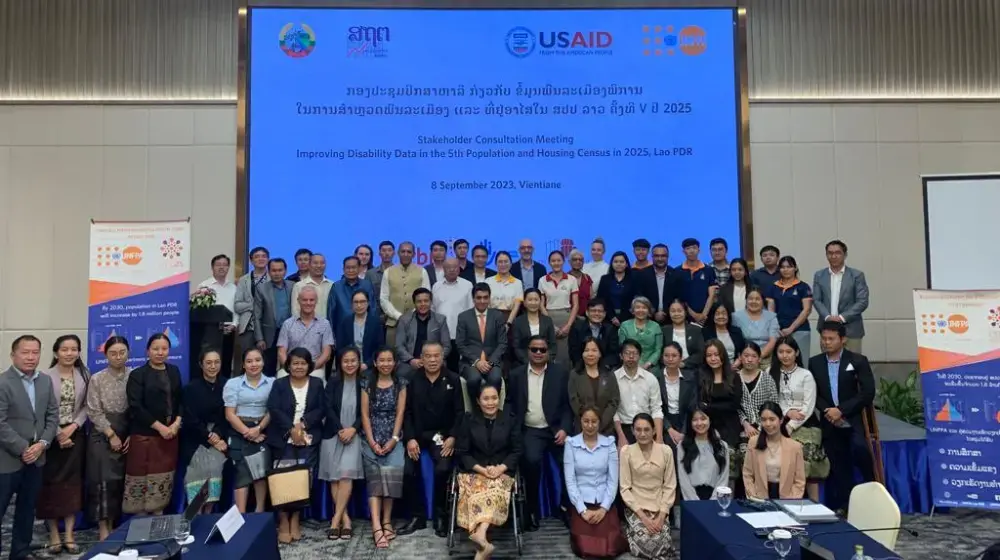Vientiane province, The Lao Government with funding and technical support from the United Nations Population Fund (UNFPA), the United Nations Children's Fund (UNICEF), AusAID, USAID, Government of Luxembourg, UNDP, WHO, WFP, JICA, UNAIDS and the Swiss Development Corporation (SDC) held the final preparation meeting of the Lao Social Indicator Survey (LSIS) at the Ministry of Health before the actual field data collection started a few weeks ago. The LSIS is the largest effort to date to measure the country's progress on social development covering almost 20,000 households from 1,000 villages throughout the country.
The 140 field workers from central and provincial Government departments around the country are ready to head to the field work after an intensive 3-weeks training and field practice held in Thalad, Vientiane Province completed in September. The 20 teams of field workers will collect data in Vientiane Capital in 75 selected villages of 6 districts, Chanthaboury, Sikhottabong, Sungthong, Park Nguem, Xaythany and Nasaythong; and will continue nationwide for the next four months.
"Our field workers have been trained and are highly committed to ensure good quality for the LSIS. For more than 4 months, they will be collecting information which will be used to improve the wellbeing of Lao people. I urge the target respondents and authorities in the selected villages and districts to provide your kind cooperation, support and contribution in providing truthful information to ensure good quality of the survey," said Dr. Bounfeng Phommalasith, Deputy Director of the Cabinet of Ministry of Health and the Chair of the LSIS Technical Task Force. "The collected information will be treated confidentially and will be vital to help the Government to improve strategies that improve our social services and accelerate our progress toward achievement of the Millennium Development Goals (MDGs) by 2015."
The survey builds on and seeks to avoid overlap between the previous Lao Reproductive Health Survey and the Multiple Indicator Cluster Survey, which have been conducted three times each since 1995. Focus areas include health (reproductive health, maternal health, contraception, sexual behavior, HIV/AIDS, infant and young child health and nutrition), education, child protection, child development, and water sanitation. Overseen by the Ministry of Planning and Investment and the Ministry of Health, LSIS is considered an important tool for the continued monitoring of MDGs and to establish a baseline for the 7th National Socio-Economic Development Plan (NSEDP).
For further information, please contact:
Diego DE LA ROSA, Advocacy and Communication Officer, United Nations Population Fund
Tel: + 856 21 315547 ext. 116 Mobile: (+856) 20 5993 6509 drosa@unfpa.org





